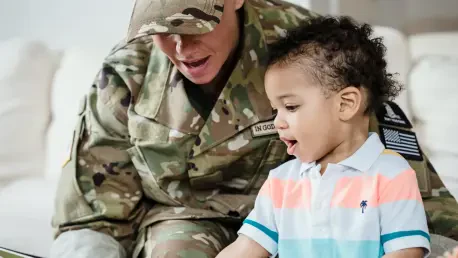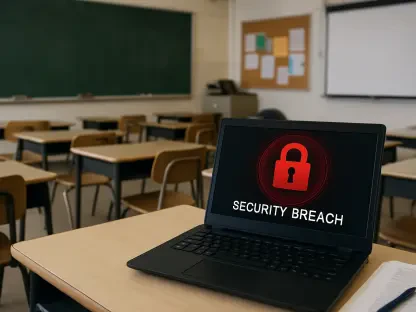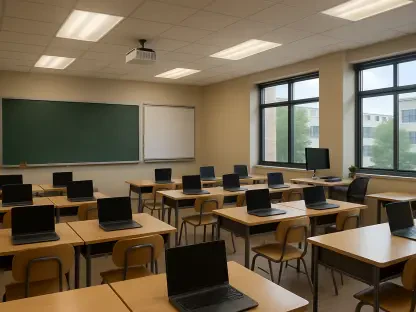Across the United States and in many international locations, Department of Defense (DOD) schools are entrusted with providing education to children from military families who face unique challenges. With frequent relocations often occurring unexpectedly and numerous adjustments connected to military life, these students require specific educational services that address their emotional, social, and educational needs. These requirements are particularly heightened when considering mental health services and special education support, pivotal elements for maintaining well-being and academic success in uncertain environments. DOD schools must not only match the services provided by public institutions but also tailor these services to the military lifestyle’s additional demands.
Meeting Mental Health Needs
Key Challenges in Military Education Settings
The mental health of children in DOD schools is profoundly affected by aspects of military life such as frequent moves, parental deployments, and dynamic family structures. These factors contribute to heightened stress levels among students, sometimes manifesting in anxiety, depression, and behavioral issues. To address these challenges, the DOD has deployed strategies incorporating mental health professionals directly into school environments, offering counseling and therapeutic services to help students adapt to new surroundings or deal with significant life changes. Programs aimed at alleviating stress have been integrated into the curricula, providing activities and support networks to enhance students’ resilience and coping skills.
However, the effectiveness of these programs is often hampered by high staff turnover rates and a lack of coordination among different initiatives, which undermines their potential impact. Furthermore, the influx of complex issues exacerbated by the COVID-19 pandemic and modern pressures, such as social media influence, has added layers of challenges for mental health providers within DOD schools. Ensuring that students who require immediate attention receive it remains crucial, yet logistical difficulties like understaffing and overextended counselors pose ongoing obstacles.
Addressing the Mental Health Crisis
In response to the growing mental health crisis, DOD schools have sought to enhance their program offerings and evaluate their efficacy continuously. Efforts include more robust training for educators to help identify signs of distress among students early on and streamline the referral processes to mental health experts. While there have been gains, a notable gap persists in maintaining a stable workforce adept at handling these intricate needs continuously. This disparity is particularly evident in overseas locations, where cultural differences and resource limitations can impede service delivery.
Evidence suggests that a more integrated approach to mental health support could alleviate some of these issues. By fostering collaboration among teachers, counselors, students, and their families, students can receive more comprehensive support tailored to their unique situations. Improving access to resources and providing consistent services across varied postings remain central to developing better mental health frameworks in DOD schools. Continued investments in professional development and strategies for retaining skilled mental health professionals are imperative to fulfilling this mission.
Navigating Special Education Services
Implementing Individualized Education Programs
Special education services in DOD schools face distinct challenges, particularly in fulfilling Individualized Education Programs (IEPs) for military-connected children. These IEPs are legally mandated to provide specific services like speech therapy and occupational therapy. Challenges intensify when families are stationed overseas, where accessing equivalent services is often more difficult. Staffing shortages and unclear delivery guidelines can lead to inconsistent service provision, failing to adequately meet IEP requirements. To mitigate these issues, the DOD has crafted directories of available services abroad and streamlined communication channels to better inform families about their options and available resources.
The need for consistent and reliable special education services has drawn significant attention, acknowledging that resource disparities and staffing issues can result in unmet educational needs. Efforts to recruit and retain qualified professionals remain a focal point, as their expertise is vital in tailoring education plans to fit the diverse capabilities and needs of students in military families. By fostering inclusive learning environments where every child’s need is addressed individually, DOD schools aspire to enhance their educational outcomes, though significant obstacles persist.
Strengthening Special Education Frameworks
To bolster their special education offerings, DOD schools are prioritizing collaborations with local educational agencies and special education organizations. These partnerships aim to enhance the range of services offered to students globally and develop a more adaptable framework for IEP implementation. Embracing technology, such as virtual resources and teletherapy, offers promising avenues to bridge gaps, especially in underserved regions. Additionally, ongoing assessments and audits are conducted to guarantee the quality and compliance of the services provided, ensuring adherence to federal mandates while adapting to the unique educational settings within military communities.
Despite progress, DOD schools must address lingering inconsistencies in service provision. This includes synthesizing various initiatives to create a unified strategy that accommodates the dynamic needs of military-connected learners across diverse geographies. The vision for a cohesive support system hinges on a well-supported infrastructure, capable faculty, and a steadfast commitment to inclusivity. By continually evaluating and refining their approaches, DOD schools can provide more effective and consistent special education services, promoting equitable educational experiences for military families globally.
Future Directions and Considerations
Across the United States and many international locales, Department of Defense (DOD) schools play a critical role in educating children from military families who encounter distinctive challenges. These schools are fundamental in supporting children who experience unpredictable relocations and the accompanying adjustments inherent in military life. Consequently, these students need specialized educational resources to cater to their emotional, social, and learning requirements. The need for mental health services and special education assistance is particularly pronounced, as they are essential for ensuring students’ well-being and academic achievement in an often uncertain setting. DOD schools are tasked not only with equating their offerings to those found in public schools but also with customizing these offerings to address the added demands inherent to the military lifestyle. This specialization is crucial for fostering resilience and success among children navigating the complexities associated with military-related transitions and environments.









